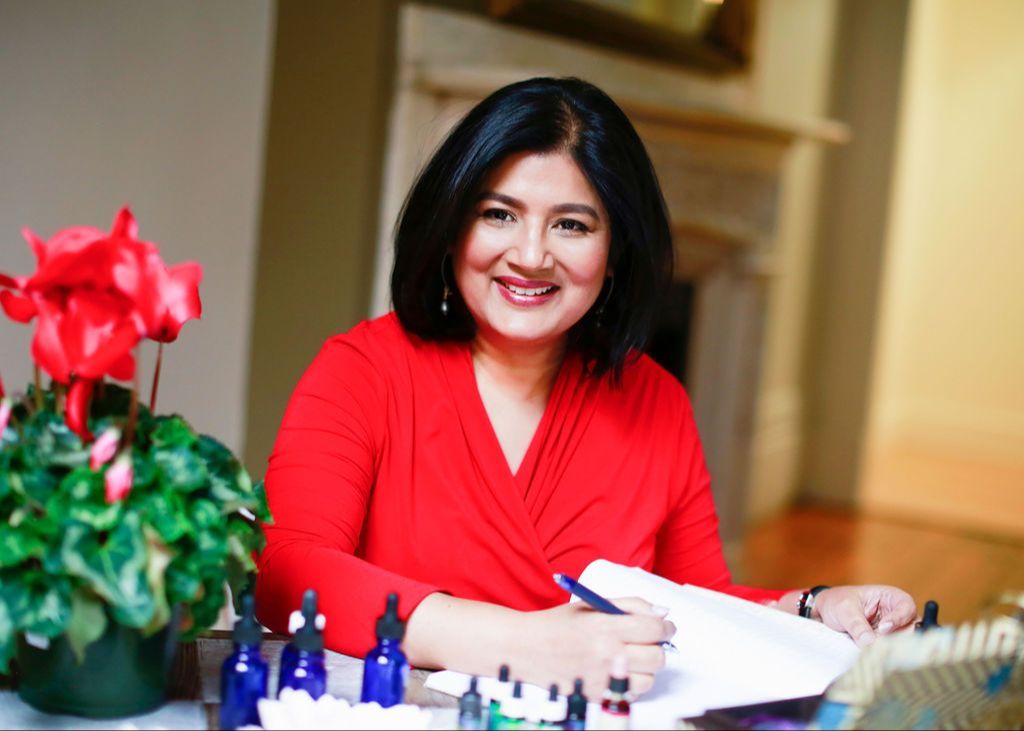
Imagine that you have shared with a close friend that you are sick of your current job and that you are excited because you’re going to interview for a new job. When you see her next time, she talks about things that are going on in her life but doesn’t ask you about the interview. There’s a feeling in the pit of your stomach. Somewhere, even unconsciously, your body has registered an uncomfortable emotion. Even though you continue the conversation as if nothing is amiss, there’s a maelstrom of emotions swirling within you.
At this moment, you have several choices. One, you could stuff your emotions down and negate them telling yourself that your reactions are not justified. Perhaps you’re telling yourself, “I’m over-reacting. I’m always so sensitive.” You say nothing. But, that day when you go home you find yourself reaching for the chocolate you had sworn off. After dinner, you slump in front of the computer or television and binge watch a so-so series on Netflix so that you don’t have to think.
Or, here’s a second scenario. Perhaps, you’re thinking, “I feel really hurt. She’s always so full of herself.” You might react sharply in the conversation and find yourself saying with an edge to your voice, “Melissa, you never asked me what happened about my interview. That was so important to me.” Can you notice the sense of blame and victimhood in your statements?
While there are different reactions to the situation, there are also several emotions at play. There could be sadness, hurt, shame, self-doubt, or anger. Any one of these might be dominant coming to the surface although there are others just below. It might even bring up memories of this happening before where you felt undervalued and invisible. It might even be that there are small things that hurt you, but you ignore them until they build up inside and you burst like a river that has breached its banks.
Listen to Your Emotions

Your emotions are giving you a message—and maybe several messages. If you stop to notice how you’re feeling, you might hear the message about yourself that it’s conveying. By listening to your emotions, you can understand and make sense of your experiences and why you react a certain way.
You can notice that when she didn’t ask about the interview, you felt hurt and unacknowledged in the relationship. You might start to notice whether you expect others to read your mind and take care of your needs, or whether your friend is usually self-absorbed and you tend to attract people like that in your life.
You might notice that you feel insecure in your relationships. You might notice a pattern about your friend or a pattern about yourself. When we pay attention to our emotions, they can give us direction.
For instance, your hurt and anger might be telling you that you really have to make new friends because your current friend is so self-absorbed that she is not really there for you. Maybe your frustration about your job is not as big as your frustration with your relationships. Maybe your sadness is showing you an old wound that is active and yet to heal and keeps getting activated by situations.
Our emotions are guiding us to help us see where we have compromised our personal power, our values, our integrity, our boundaries and, even our dreams. By working with them, they bring us back home to harmony and ourselves.
In a flower essence consultation, I listen to my clients and hear the emotions that are presenting themselves. Through flower essences, we can work with our emotions so that they can guide us in a new direction. My clients use flower essences to start the journey back to hearing themselves, to healthy boundaries and self-care. Working with flower essences over the past decade, I have witnessed dramatic shifts in my life and that of my clients.


